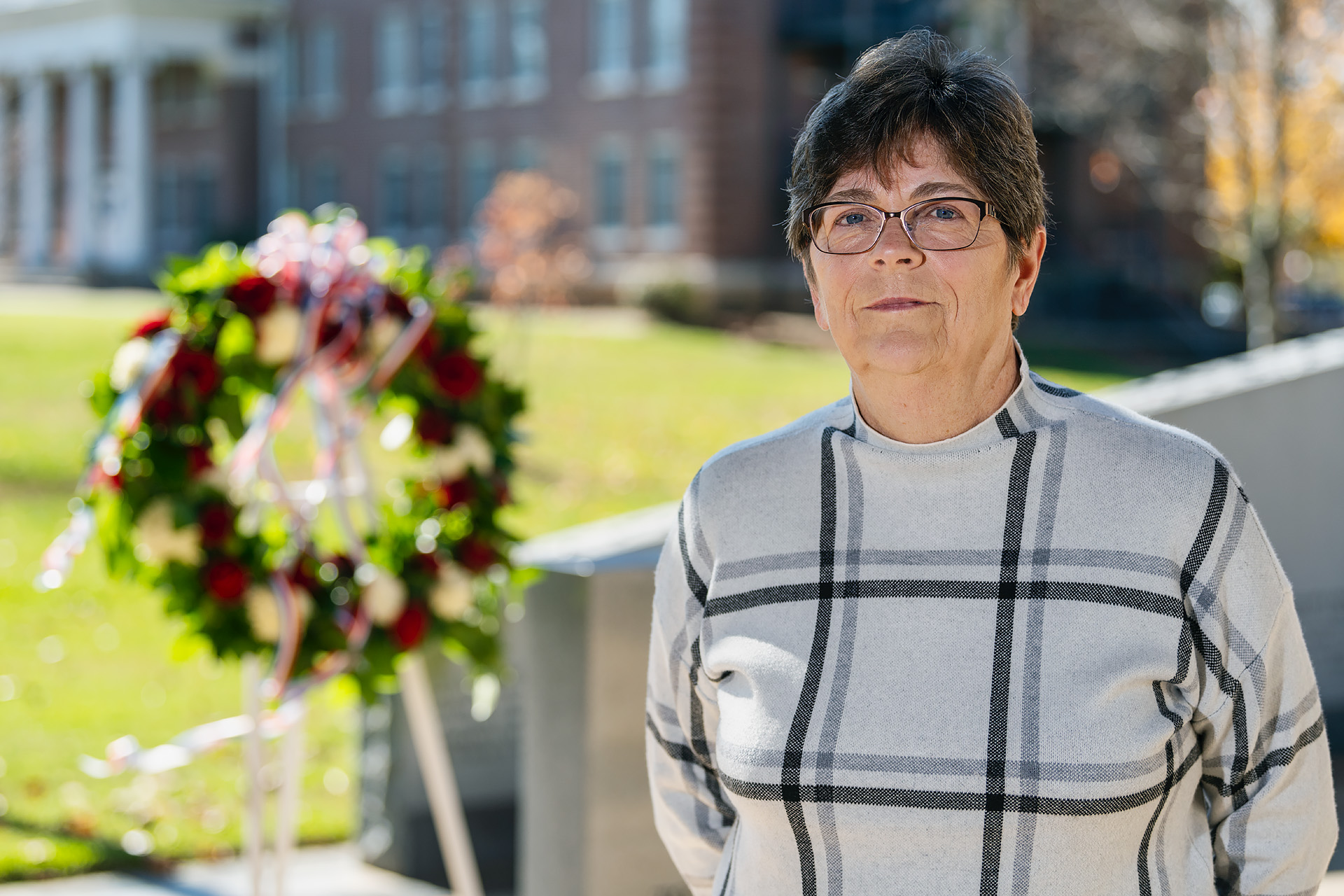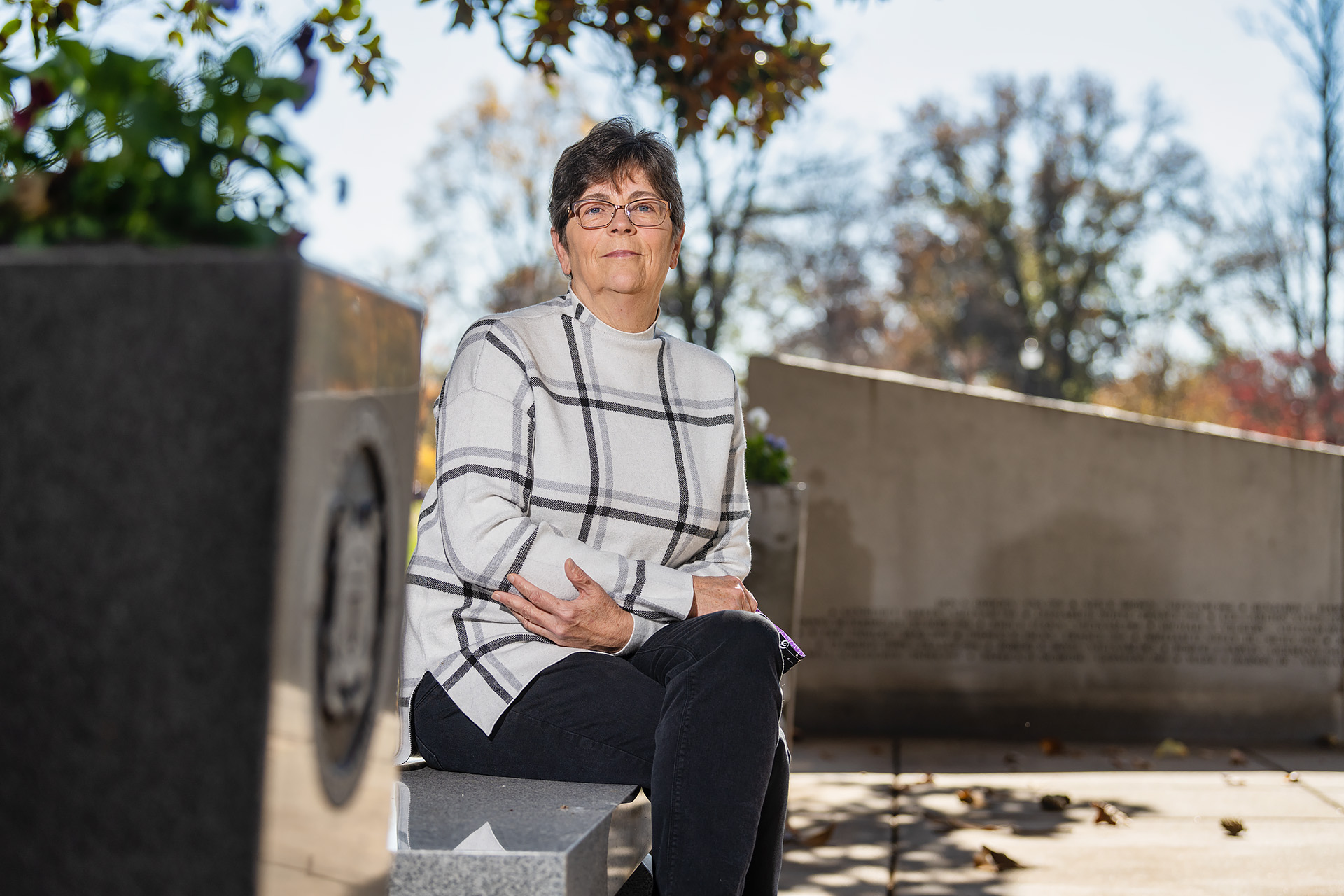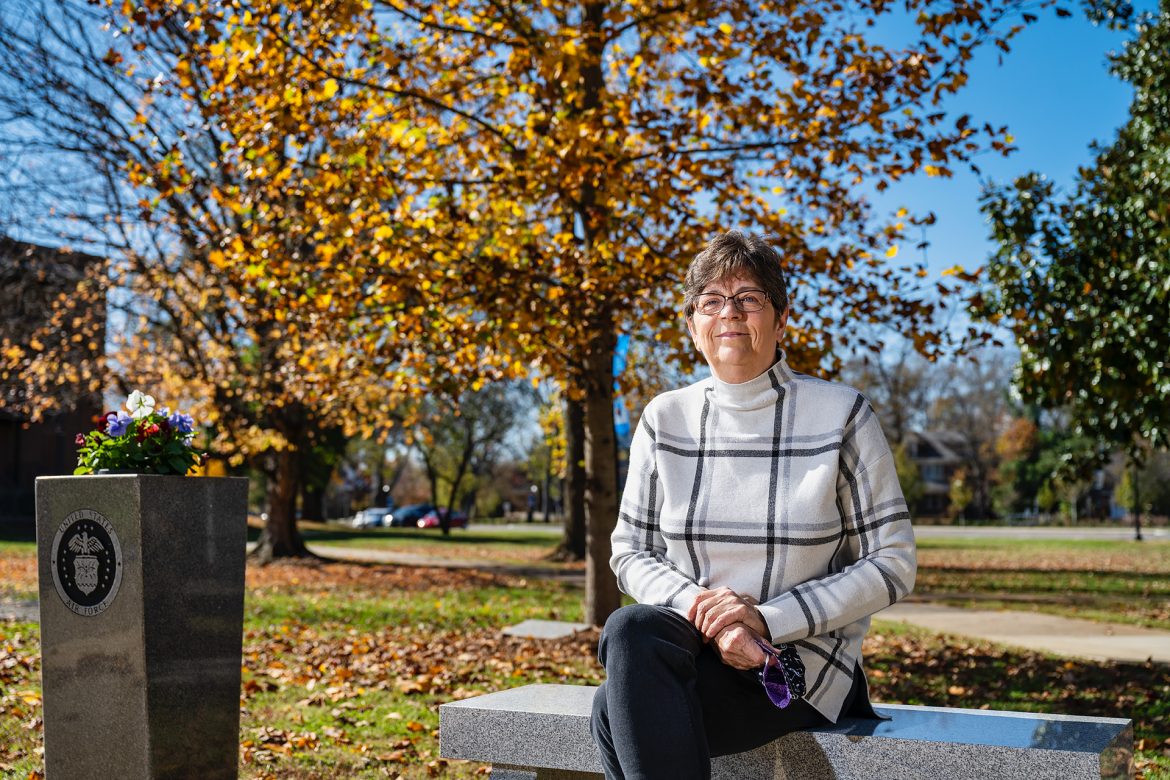By: Patsy Weiler
Extensive communication with her students, plus a positive outlook toward meeting new challenges, equals how math professor Rebecca Calahan is solving the equation of teaching during a pandemic.
“I tell my students, ‘when faced with doing hard things, don’t spin your wheels looking for new ways to do old things. Look for new ways to do new things,’” said Calahan.
The seasoned classroom veteran, who has taught math at MTSU for nearly 30 years, remembers Spring Break 2020 being the most stressful week of her university career. Her main concern was making sure her two MATH 1730 sections of 50 pre-calculus STEM (science, technology, engineering, math) majors would finish the course and be prepared for calculus.
“During our extended spring break week, I called each student to assure them that class would continue in such a way that they would complete the course and they would be ready for Calculus I,” Calahan said. “Together, we learned our way through ‘Zoomland.’”

Rebecca Calahan, Mathematical Sciences faculty at the Veterans Memorial. (Photo: Andy Heidt)
The MTSU alumna still smiles recalling an experience during the early days of videoconferencing for an 8 a.m. class involving one young man named Jacob.
“He came by sitting up in bed and turning on his laptop. I was just happy he was there,” said Calahan. “When he said, ‘Baby, get back in bed,’ I was glad to find out Baby was his big, brown Labradoodle.”
The dog wasn’t the only four-legged visitor to a zoom session as Calahan’s cat Ruby made a cameo appearance and a young woman named Allison shared with the morning group about riding her horse to work at a vet’s office — although the four-legged form of transportation didn’t make it on camera.
Before the COVID concerns, Calahan, who is the graduate teaching assistant supervisor and calculus tutoring lab supervisor, had already taught Math 1010 (mathematics for general studies) and Math 1710 (college algebra) classes online.
Calahan said it was very helpful she was already making extensive use of the D2L course shell for her pre-calculus offering when MTSU shifted to remote learning.
D2L, or Desire2Learn, is MTSU’s online learning platform.
“It became apparent that a well-developed D2L course page could help to provide an online substitute for a physical classroom,” Calahan said.
With help from math teaching assistant Zach Thomas and the campus ITD staff, the arduous task to developdetailed, ready-to-load D2L packages for three of the most-taught undergraduate mathematics courses — mathematics for general studies, college algebra and pre-calculus — was accomplished.
One of the tall hurdles to leap during the process was integrating external learning tools such as MyMathLab, software that often requires detailed guidance from the instructor, but the determined team solved the riddle.
“Classes can now use their D2L course page for immediate access to course materials, lecture recordings, calculated grade distributions, course assignments and so much more,” said Calahan. “These course packages have been the most helpful to our new instructors, including our graduate teaching assistants.” Plus, a Calculus Remote Tutoring Lab is available.
Calahan is candid when explaining that during the recent turn of events she has definitely learned more about technology and how to utilize it for better teaching than she ever wanted to know.

Rebecca Calahan, Mathematical Sciences faculty at the Veterans Memorial. (Photo: Andy Heidt)
However, a big positive from the change is more one-on-one, honest and direct interaction. Calahan has regularly scheduled Zoom meetings, gives students her personal phone number and makes extensive use of email.
“In an online course, students who might have been insecure in the classroom are now more comfortable talking math or asking for help. When emails are your main form of communication, they tend to be more personal and honest,” said Calahan.
The open communication with students, she says, has inspired her to be kinder, more patient and to pay a bit more attention to the other side of the teacher-student relationship.
She is proud of her students who are trying their hardest to make the best of challenging circumstances. The devoted educator looks forward to seeing all of them in person, asking how their weekend went, watching them form new friendships and enjoying pot-luck lunches with teaching assistants.
— Patsy Weiler (Patsy.Weiler@mtsu.edu)


COMMENTS ARE OFF THIS POST